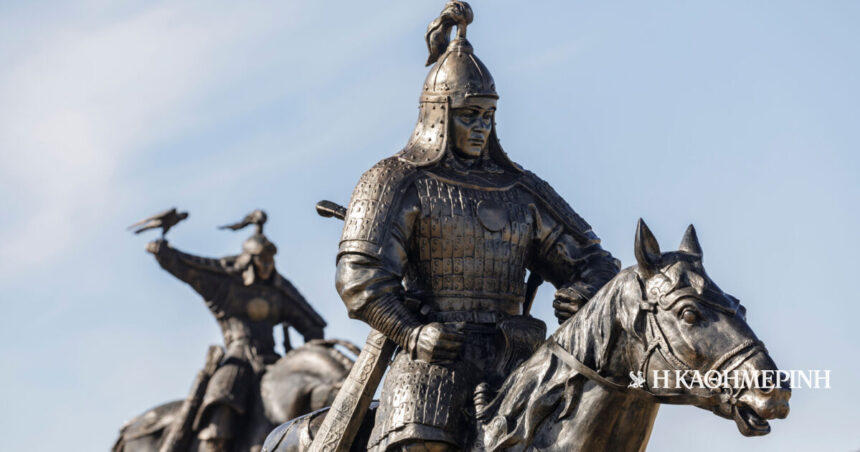His siege Kiev from them Mongols it ended on December 6, 1240 with their victory and was a heavy moral and military blow for the principality of Galicia-Volhynia, which submitted to Mongol rule. At the same time, the victory allowed Batu Khan to advance further west into Central Europe.
The first Mongol expansion under Batu Khan had already begun three years earlier, with their invasion of the principality of Ryazan, in the northeast Russia. Then, in 1238, the Mongols advanced southwest, destroying the cities of Vladimir and Kozelsk. Their gaze, however, remained focused on Kyiv. yes, they sent special envoys to the city to demand submissionbut who were executed by Grand Prince Michael of Chernigov. The reaction was immediate and Michael was finally forced to leave Kiev and take refuge in Hungary. The flight led to disputes over the claim of his position by other princes of nearby regions.
By late November 1240, the entire Mongol army was encamped outside the city walls.
In November 1240, the army of Batu Khan under the command of general Shubutai approached the city of Kiev. The city was then under the rule of the Principality of Galicia-Volhynia (also known as Ruthenia) and was commanded by Voivode Dmytro. Batu Khan’s cousin, head of the Mongol vanguard, who had arrived earlier, enchanted by the splendor of the city, he was one of the envoys who offered specific terms of surrender. When these emissaries were also executed, the Mongols decided to proceed with an immediate attack. By the end of the month, the entire Mongol army was encamped outside the city walls.
The siege of Kiev lasted just nine days, from November 28 to December 6, 1240. On November 28, the Mongols set up catapults near one of the three gates of the old city, where the tree cover extended almost to the walls, succeeding sustained blows for several days. Eventually, the walls were breached and hand-to-hand fighting ensued in the streets, with the city’s defenders gradually retreating to central Kiev. On December 6, the Mongols launched their final attack and succeeded in taking over the city. They followed lootingwhile most of the population was slaughtered. It is typical that of the 50,000 inhabitants only 2,000 survived. Most of the city was burned and only six of the 40 major buildings remained standing.
The westward advance was halted in September 1242.
After this important victory, the Mongols forced both Galicia and Volhynia to submit to their rule, opening the way for their advance into Poland and Hungary. The westward advance was halted in September 1242, when Batu Khan, following the death of Oghendei Khan, had to attend the election of the successor – a position he eventually occupied.
However, it had now become clear that all these areas were dominated by the Mongols. Proof of this is the journey of all the great reigning princes of Russia to Sarai, the capital of Batu Khan’s newly formed Golden Horde state, to officially declare their submission to him, thereby securing their positions.
Column editor: Myrto Katsigera, Vassilis Minakakis, Antigoni-Despina Poimenidou, Athanasios Syroplakis




